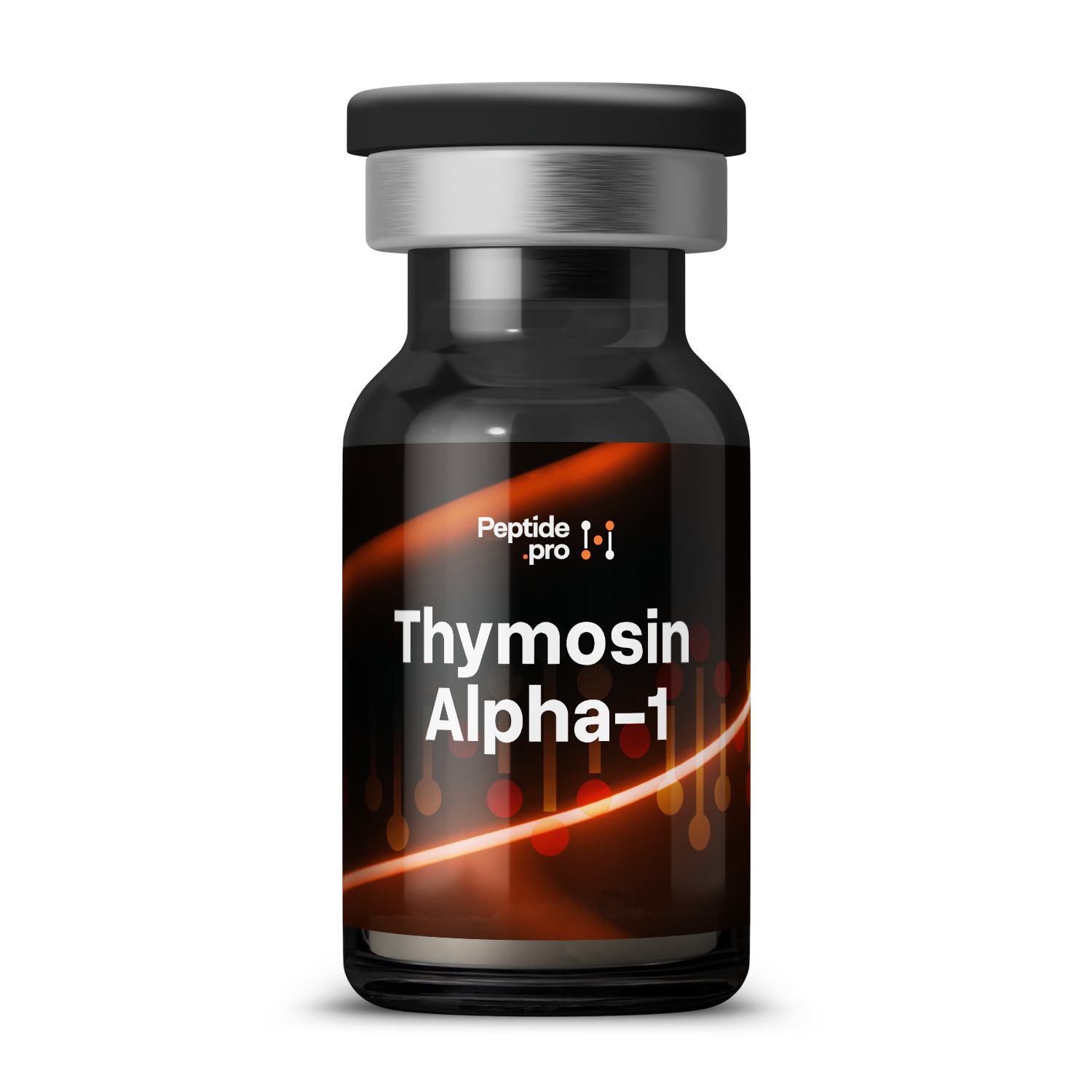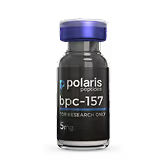Compound Overview
About the product
The sequence of Thymosin Alpha-1 is Ac-Ser-Asp-Lys-Pro-Glu-Thr-Ala-Val-Cys-Thr-Ser-Lys-Thr-Lys-Asp-Lys-Pro-Gly-Glu-Glu-Asp-Ala-Ala-Val-Val-Thr-Ser. It features an N-terminal acetyl group to improve stability and bioavailability. All residues are natural L-amino acids, and no non-natural modifications are present beyond acetylation. Research- and pharmaceutical-grade material is synthesized by solid-phase methods and purified by HPLC to ≥98 % purity, with identity confirmed by mass spectrometry.
Thymosin Alpha-1 binds to Toll-like receptors on dendritic cells and macrophages, activating signaling cascades that increase cytokine production and antigen presentation. It also promotes T-cell differentiation and survival by upregulating IL-2 and IFN-γ pathways. These combined effects enhance both innate and adaptive immunity. In clinical settings, receptor engagement leads to measurable increases in functional T-cell counts and improved vaccine responses.
Thymosin alpha-1 benefits include boosting immune responses in chronic viral infections and immunodeficiency. In hepatitis B and C patients, Thymosin Alpha-1 treatment has been shown to increase viral clearance rates and normalize liver-function tests. It is also approved as adjunctive therapy in certain cancers to improve chemotherapy tolerance and reduce infection risk. Ongoing studies examine its role in COVID-19, sepsis, and as a vaccine adjuvant.
Thymosin Alpha-1 is generally well tolerated; the most common adverse events are mild injection-site reactions and transient fever. No serious systemic toxicities have been reported in trials up to one year. It does not cause immune overactivation or cytokine storm. Routine monitoring of blood counts and liver enzymes is recommended during therapy.
The peptide is produced by Fmoc solid-phase peptide synthesis, assembling the 28 residues on a resin support. After cleavage and deprotection, it is purified by preparative HPLC to pharmaceutical grade. Quality control includes analytical HPLC, mass spectrometry, and endotoxin testing. Manufacturing follows GMP guidelines for injectable biologics.
Thymosin Alpha-1 is approved in China, Italy, and several other countries for chronic hepatitis B/C and immunodeficiency. It is not FDA-approved in the U.S. but is available for clinical trials under IND protocols. In approved regions, it is prescription-only and administered by subcutaneous injection.
Thymosin alpha-1 dosage in approved regimens is typically 1.6 mg administered subcutaneously twice weekly for 12–24 weeks in viral hepatitis. Oncology adjunctive protocols use 1.6 mg once or twice weekly during chemotherapy cycles. No standardized dosing exists outside these settings; all use should follow local guidelines.
- Do follow approved dosing schedules and monitor immune markers.
- Do administer by trained healthcare providers via subcutaneous injection.
- Don’t combine with other immunostimulants without clinical justification.
- Don’t use in patients with autoimmune disease flares without specialist oversight.
- Q: Does it work in COVID-19?
- A: Early trials suggest improved clinical outcomes, but larger studies are pending.
- Q: Can it be self-administered?
- A: In some regions, trained patients may self-inject after instruction.
- Q: Is resistance an issue?
- A: No evidence of tachyphylaxis or diminished response over typical treatment courses.
For research use only. Not approved for medical use.


